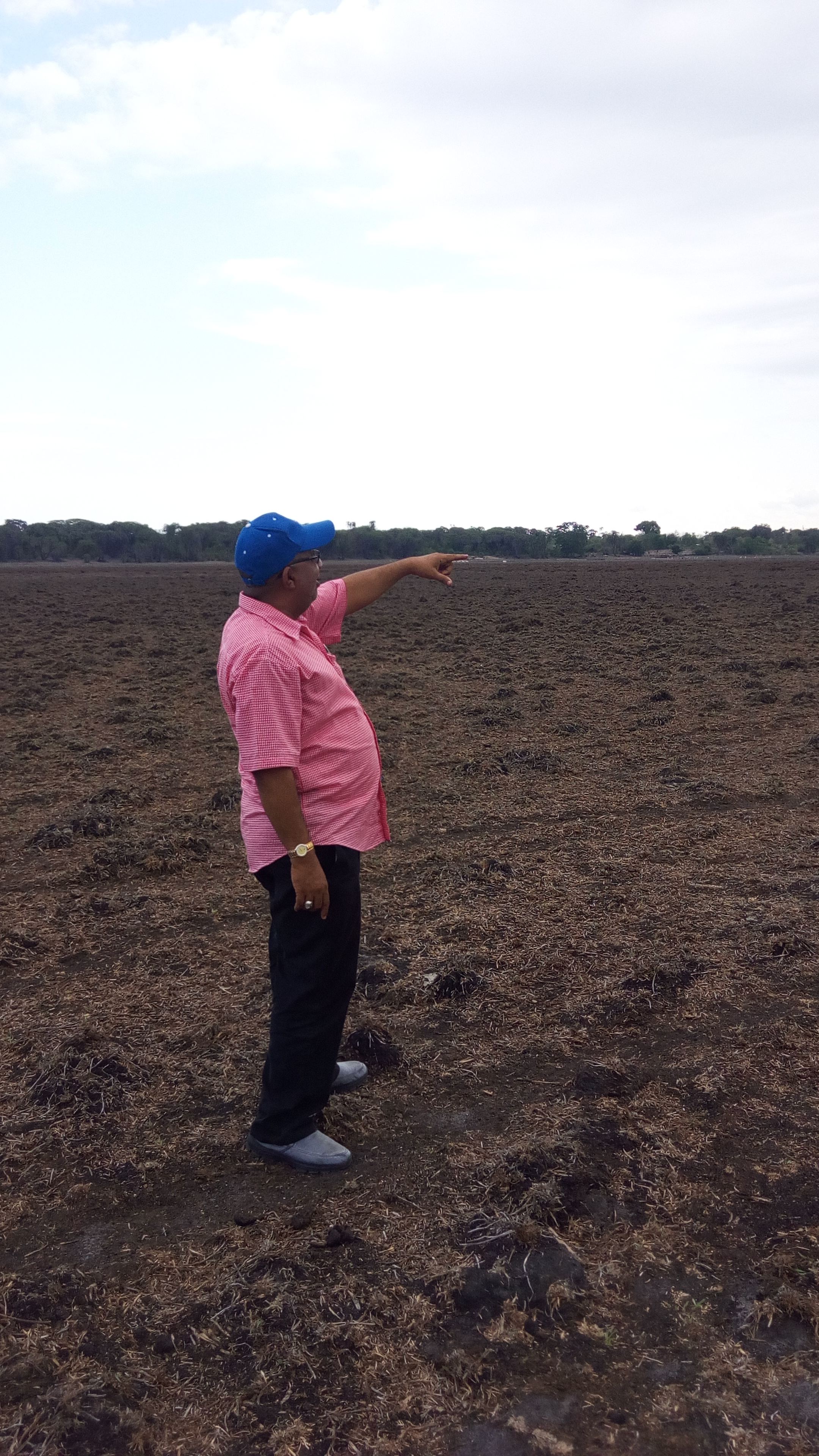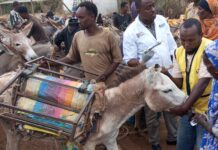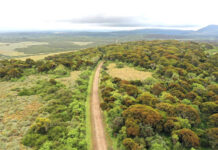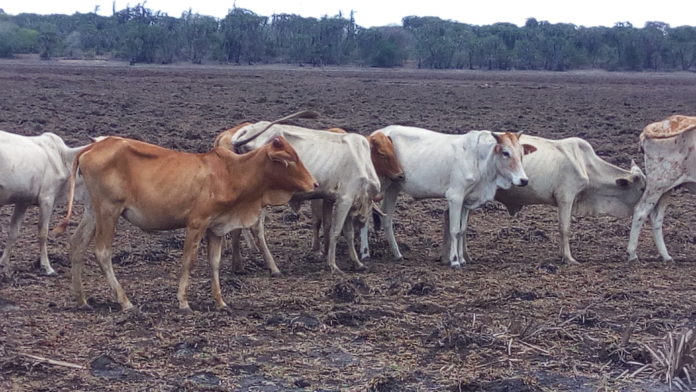
By Mazera Ndurya
The advent of long rains has rekindled the hopes of thousands of fishermen in Lamu after months of staying out of business. The lakes they depend on for a livelihood dried up as a result of prolonged drought.
But even as they wait with renewed hope, it would take much longer for the lakes to spring back to life because the waterways have been interfered with.
It was a big blow when three major ox-bow lakes that have, for years, been the lifeline of fishermen, herders and local residents of Witu and Mpeketoni on the mainland of the Lamu Archipelago, a UNESCO World Heritage Site, dried up.
For residents of Kitumbini in Witu, the situation could not have been dire as they witnessed one of the rarest occurrences in the history of the area, having to occasionally scramble for the scarce water resource with wild animals.
Igiro Shora, now in his 60s still cannot believe what he is experiencing after being forced to literally buy water in jerricans for his animals.
Surrounded by one of the biggest natural rain forests in Kenya, the picturesque Lake Witu which was home to hippos, crocodiles, an important source of water for livestock, humans, and source of livelihood to hundreds of fishermen is now a dry mass stretching several tens of kilometers.
“Even in the worst of droughts that I ever witnessed, this lake never used to dry up completely. A large section of the lake would dry up but we would still have some little water left for our animals and for domestic use.
“Herders from North Eastern and from as far as Somalia have found refuge here in times of worst drought. But this year the situation has been different. Even the wild animals have disappeared and occasionally coming to our homesteads to look for water and in their wake leave a trail of destruction and even loss of life,” said Mr. Shora.
The lake, according to local residents has been the lifeline for over 20, 000 people in the area. But another livestock keeper from Didewarede Ibrahim Godana Ido, a similar situation is witnessed several kilometers from Witu.
Another lake that has been serving communities from Didewarede, Chalaluma, Moa, Omido, Riketa, Nairobi area, Bulto and Chira has also dried up.
“It is always a sight to behold, coming here with animals watching them drink as we engaged in endless banter with fellow herders as we wait for the sun to go down to take them back home.”
“Women and other people would also be busy on the other side either washing or just fetching water for their domestic use,” said Mr. Ido who says they now have to pay Sh2 per animal every day for water sold in the village.
Just like Mr. Shora, Mr. I do still do not understand how the area which is known to receive rain in four seasons every year, all attributed to the surrounding Witu forest, could be going through such a difficult patch.
But the situation has also been bad for wild animals. Mr. Ido says it has become common for one to come across carcasses of livestock, hippos and other wild animals that have succumbed to the drought, a scenario that heightens their worries.
While the situation is largely as a result of erratic rains that have been pounding the area, the residents can also share in the blame for what is happening to the lakes.
From the wanton destruction of the forest to encroachment on waterways that feed the lake, the situation could be far from over unless both the national and County Governments come out forcefully to safeguard the forest.
A local resident and former Chairman of the Lamu County Council Hassan Albeit said the residents have watched as their sources of livelihood continues to face extinction.
This lake and several other lakes that have dried up, said Mr. Albeit have seen thousands of tones of fresh water fish support lives of thousands of residents let alone the other benefits such as water for domestic use and also for livestock and wild animals.
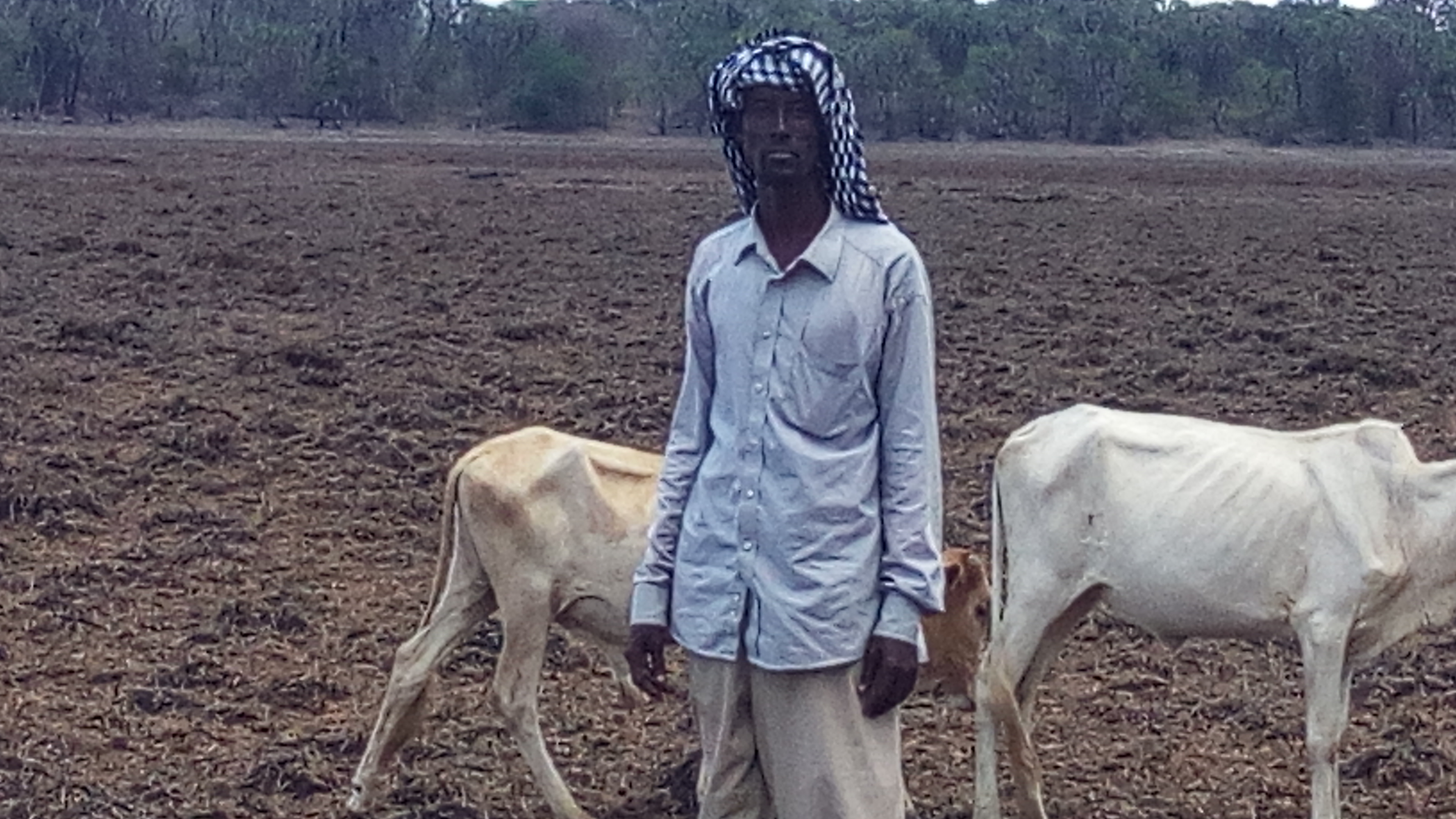
“This is a big blow to our lives and we all have to take responsibility for this sorry state of affairs. In this day and age, we should be thinking of how to harness theses lakes as places of recreation for the domestic tourists and not worried about them drying up.
“I remember when I was a kid there used to be a boat operating on this lake and it was always fun just coming in the evening watching people swimming and play while others were busy washing and fetching it for domestic use,” said Mr. Albeit, a senatorial aspirant for Lamu County.
It is unfortunate, according to Mr Albeit, that such important resources have been ignored by the County and national governments to be left to die out just because there have been no plans to safeguard them.
He said it was unimaginable that such lakes as the Lake Kenyatta could just be left to die and it their wake bring untold suffering to thousands of residents and wild animals who depended on this resource.
Mr Albeit said, people now have to brace for more difficult times ahead unless the governments come up with sustainable ways of protecting the environment through the promotion of alternative sources of energy like wind and solar.
“When we hear of projects such as the establishment of the coal plant to generate power in Lamu, it beats the logic as to whether we are serious about safeguarding the fragile environment.”

